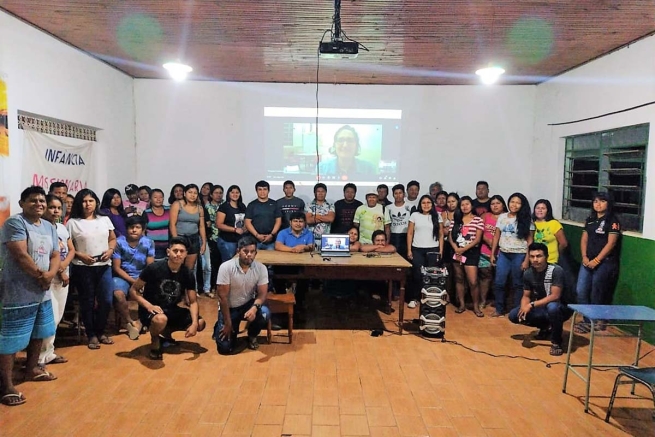The first online lecture took place on the evening of Sept. 12, when UniSALESIANO students gathered in a village setting to hear a talk by the Distance Education Course Coordinator, Professor Elaine Cristina Moreira da Silva.
The lecture was also virtually attended by the Vice Chancellor for Teaching, Research and Postgraduate Studies, Prof. André Ornellas, who explained the history of UniSALESIANO and the importance of taking an academic path. "Bringing education, technology, and providing opportunities for personal and professional growth is part of the mission of the Salesians," Prof. Ornellas said.
As Prof. Moreira da Silva explained, the course is free, lasts four years, and is organized by semester, with weekly meetings on Mondays. "It provides specific modules and adaptations to meet the specific needs of this audience, always following the national curricular guidelines, which are presented for the Pedagogy Course," she explained.
Fr. Erondi Tamandaré, SDB, Director General of UniSALESIANO, explained that the idea of developing an EAD hub in Meruri was born during an informal conversation between him, the Director of the Indigenous Missions of Meruri and São Marcos, Fr. Andelson Dias, SDB, and the Provincial Secretary, Fr. João Bosco, SDB.
Then came the formal request to the UniSALESIAN Rectorate, which was soon unanimously approved. "We felt the need for continued and strengthened collaboration with indigenous peoples," clarified Fr. Tamandaré, adding that the goal now is to expand the hub to other villages.
For his part, Fr. Andelson stressed the importance of the hub for the training of youth and adults who desire a degree despite the many obstacles. "Many natives go to the cities to study, come back, and help their people. However, in the cities, there are many difficulties and we noticed that many were coming back and there was discouragement due to the discontinuity of studies," Father Andelson stressed.
For him, the EAD hub within the village enhances the culture as it strengthens family ties and provides education, with a degree in Pedagogy. "In addition to knowledge, they will be able to practice their profession, which is of fundamental importance to the entire Boe-Bororo community," he concluded.
Monique Bueno


